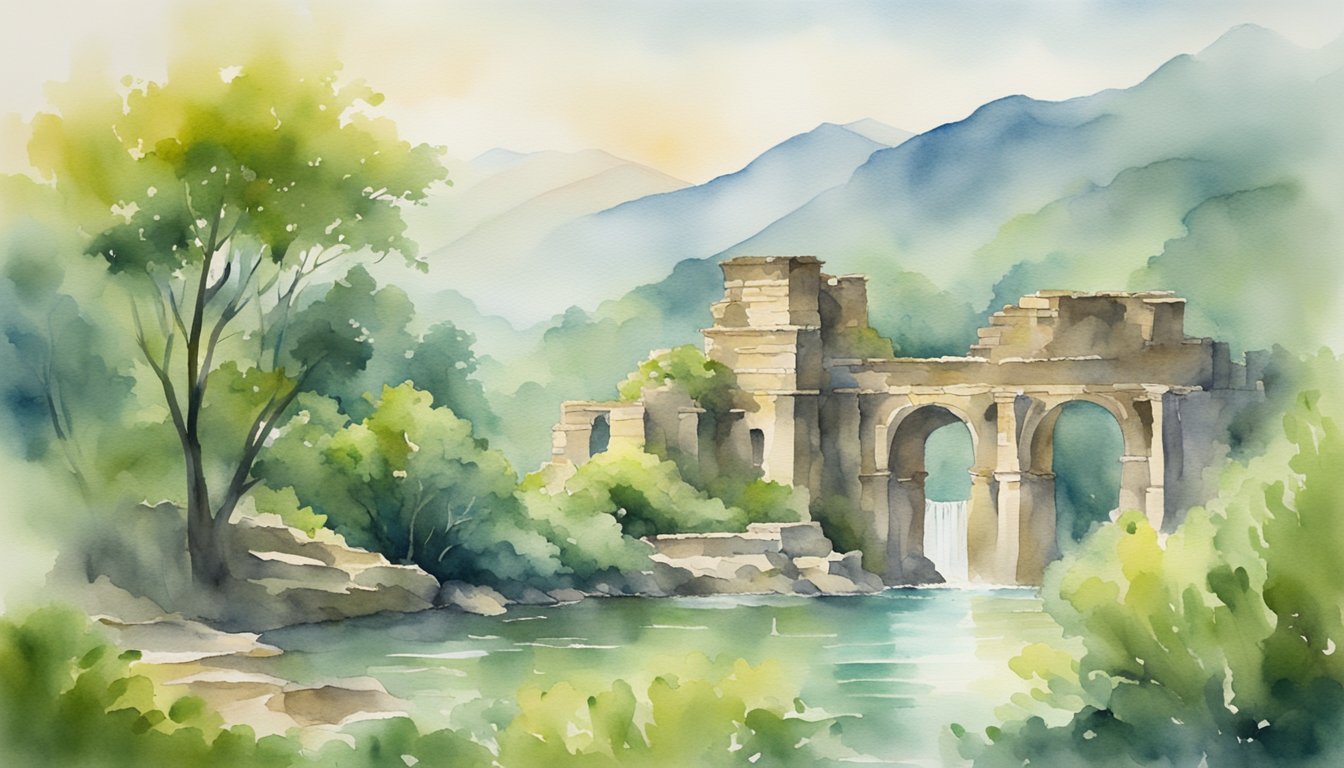Foundations of Ancient Civilizations

The pillars of ancient civilizations were built upon a foundation of agricultural innovation, burgeoning urban centers, and the development of societal structures.
Evolution from Prehistory to Early Societies
The Neolithic Revolution marked a profound shift from hunter-gatherer lifestyles to settled agricultural communities. The domestication of plants such as wheat and barley and animals catalyzed this transition. As farming techniques evolved, humans learned to cultivate the land more efficiently, leading to surplus food production. This surplus allowed individuals to engage in activities beyond agriculture, eventually giving rise to specialized crafts and the division of labor.
Rise of Cities and States
With the development of agriculture came the growth of the first cities, which formed the heart of emerging civilizations. The organization of city-states provided a framework for social structure, and the development of government systems. New technological advances, such as bronze tools and pottery, facilitated these civilizations’ expansion. At the same time, irrigation technologies enhanced farming capabilities. The invention of writing systems, the conception of religion, and the creation of art reflected the increasingly complex societal structures and cultural values. Archaeologists, through the recovery and analysis of material culture such as pottery and tools, piece together the lifestyles, economies, and belief systems of these early societies.
Great Empires and their Contributions
Ancient civilizations have left a lasting legacy on modern society with their advancements in culture, technology, and governance. Each empire brought forth unique contributions that still echo through time.
Cultural and Technological Advances
The Egyptians were pioneers in the development of monumental architecture, as prominently displayed by the Great Pyramid, which marked the zenith of the Old Kingdom’s achievements. The use of the Nile River for sustainable agriculture set a precedent for water resource management.
Mesopotamia, often dubbed the cradle of civilization, was the birthplace of numerous innovations. Writing systems such as cuneiform emerged in Sumer, facilitating the recording of history and administration. The city-state of Babylon under King Hammurabi saw the formulation of one of the ancient world’s first law codes.
China was home to intensive bronze work and early chariot manufacturing during the Shang Dynasty, while semi-mythical Emperors like Yu the Great pointed to advanced understanding of flood control and irrigation.
The Indus Valley Civilization distinguished itself with its urban planning, including sophisticated drainage systems and standardized weights and measures, underlining an inclination towards order and precision.
Ancient Greece saw the emergence of the polis (city-state), laying the foundations for Western political thought, and the development of democracy, particularly in Athens.
The Roman Empire epitomized centralized administration with its complex network of roads, fostering rapid communication across vast distances. Not to mention, the Latin language of Rome has deeply influenced modern language structures and vocabulary.
Influential Leaders and Governance
Pharaohs like Menes and Ramses the Great personified the divine nature of kingship in Ancient Egypt and wielded their power to broker peace treaties and build vast collections of monuments.
Leaders such as Sargon of Akkad, who established the first known empire in history, demonstrated the possibilities of military conquest and central authority in Akkad.
The Assyrians, with capitals at Assur and Nineveh, exemplified strong centralized states with powerful kings, military prowess, extensive use of iron weaponry, and were known for their cruel treatment of conquered people.
Alexander the Great of Macedonia achieved legendary status through his unprecedented conquests which spread Hellenistic culture across a diversity of regions including much of the Middle East and parts of Asia and Africa.
The Babylonians, particularly during the Neo-Babylonian Empire, maintained an astronomical expertise that was so sophisticated it could predict celestial events, a knowledge that transferred to civilizations that followed.
The Roman legal system and the concept of a republic, governed not by monarchs but by elected individuals and law, influenced the formation of modern democratic systems.
Empires such as these expanded their influence through trade, warfare, and diplomacy, shaping the course of history and impacting the myriad social, legal, and cultural structures in the world today.

